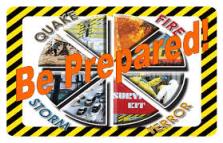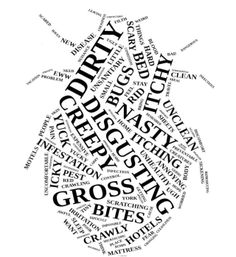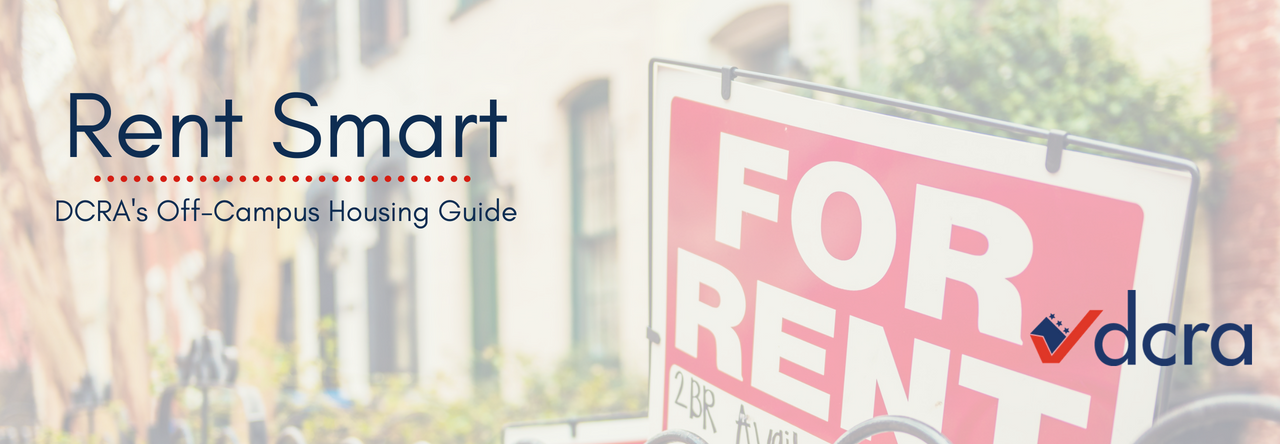Check out this overview video covering the Rent Smart DCRA program and learn how you can reach us with inspection requests or concerns.
Author: DCRA Communications
Home Inspections

Housing inspectors from the Department of Consumer and Regulatory Affairs (DCRA) have a mission to protect the health, safety, economic interests and quality of life for residents and visitors of the District.
Why is this important to you? DCRA housing inspectors respond to resident’s complaints each day whether by incoming calls, emails, and/or social media. “As a housing code inspector, it is my responsibility to assess housing code violations whether they are brought to my attention by a tenant or found upon an assessment of the property,” said Derron Manning, a DCRA Housing Code Inspector.
Home inspections are necessary and can help residents avoid property damage or, in some cases, life-threatening injuries. Checking smoke alarms, leaky windows, roofing and unstable flooring are some of the key items examined by an inspector.
An inspection can yield expected and unusual discoveries like:
- Defective smoke detectors
- Animal remains (e.g. birds, cats, dogs, squirrels, raccoons or reptiles)
- Lead-based paint
- Faulty do-it-yourself (DIY) repairs
“Home inspections are necessary because it is rare to find tenants and especially owners who are familiar with housing code violations for the District of Columbia,” said Manning.
For more information on housing codes, please visit dcra.dc.gov.
The District’s Grass Season Has Begun!

In the District of Columbia, property owners should be aware that grass eight inches or higher must be cut—or else.
This regulation (DCMR 14, Section 302) is enforced by the Department of Consumer and Regulatory Affairs (DCRA) from May 1st through October 31st each year. Failing to adhere to this law could result in a fine of $500 or more.
“Grass season keeps everybody on code,” said James Johnson, assistant supervisor for the Vacant Property Division’s abatement team. “Our job is important because it helps keep the city and neighborhoods uniform and beautiful.”
Excessive vegetative growth can cause serious public health implications. Tall grass can trigger respiratory problems like asthma and allergies in District residents and visitors.
Weeds create a breeding place for mosquitoes, rats, mice, snakes and other vermin which are drawn to grass and weed overgrowth.
Vegetation may be defined as any grasses, weeds, or plants at any state of maturity that:
- Exceeds more than 8 inches in height, is untended, or creates a dense area of shrubbery that is a detriment to the health, safety and welfare of the public;
- Creates a harbor (including hiding places for persons) or provides a place to conceal refuge or trash, regardless of height;
- Develops into deposits, or accumulation of, refuge or trash; harbors rodents and vermin or provides a refuge for snakes, rats or other rodents;
- Creates an unpleasant or noxious odor;
- Constitutes a fire hazard; or
- Contains grass or weeds that are dead.
“We are also good for the environment because we have some owners who will not cut their bushes, trim their hedges or manicure their lawns timely while their next door neighbors will. That’s not right. So what we do keeps the neighbors fair to each other,” Johnson said.
Residents who have members in their communities not willing to abide by the grass laws should report property owners with grass and/or weeds exceeding eight-inches to 311 or email us at dcra.grasscomplaints@dc.gov. Be sure that before you make contact with 311 or the agency that the absolute correct address of the complaint property is provided.
To encourage voluntary compliance before the city has to intervene; DCRA will be hanging door hanger reminders at properties where the grass height is close to the 8 inches.

A Line Has Been Drawn in the Sand…SlumLords Beware!
Our very own Mayor Muriel Bowser has drawn a line in the sand for all District landlords not to cross. Mayor Bowser has always been passionate about producing, protecting and preserving affordable housing for the lowest income and most vulnerable residents in the city.
A few months ago she strongly noted to Maryland based Sanford Capital, who own and operate 66 residential buildings with more than 1,000 housing code violations, to quickly fix the problems or prepare to face stiff penalties, fines and potentially a costly and lengthy legal battle with the courts.
Although Sanford, has received the negative publicity in the newspapers and other media outlets, the Mayor used that opportunity to forewarn all landlords with property in Washington, D.C to maintain a certain basic standard of living in your properties or else!
Several reports cited that families, including the elderly and small children, residing in the apartments managed by Sanford, faced such deplorable conditions such as broken air conditioners during the summer and non-working heaters in the winters. Furthermore, there were extensive confirmations of mold and mildew, reports of broken toilets and refrigerators and plenty of sightings of vermin despite tons of repeated complaints from the residents.
More than $500,000 in fines could be levied against Sanford for the inequities suffered by the residents, according to Bowser. The Mayor also indicated that she would be giving more power and leeway to the Department of Consumer and Regulatory Affairs (DCRA), the agency that inspects, regulates and enforces all property codes within the District.
Now DCRA will be given the capacity to go after all property owners who do not maintain their properties to a basic living standard. Additionally, DCRA will now have the ability to address vacant nuisance properties and really go after each potential slumlord..
DCRA’s Director Melinda Bolling plans to use the legal process to ensure that property owners, like Sanford, are adhering to the law. Director Bolling also states that the department will be available to assist landlords with maintaining codes and not coming into violations.
Here are four tips for property management and District landlords:
- Be educated on and compliant with DC codes in relation to property management
- Seek assistance from DCRA and its subject experts
- Employ only competent, licensed and bonded contractors to do jobs
- Be proactive
The consequences of a landlord not taking heed to these tips can be monumental. The more you know and the more you care about your tenants, the better the relationships can be and, ultimately, the more your property will rise in value and the more compensation you can receive.
BE PREPARED
 Now that you may be thousands of miles away from your family, you must now consider your on-campus and off-campus dwelling your home away from home.Whether you live with more than one person or live alone, there should always be a plan in place for if and when disaster strikes.
Now that you may be thousands of miles away from your family, you must now consider your on-campus and off-campus dwelling your home away from home.Whether you live with more than one person or live alone, there should always be a plan in place for if and when disaster strikes.
Things, such as fire drills and having an exit plan, are very important safety practices. Here are seven tips for fire safety and awareness:
- Install a smoke/carbon monoxide alarm on every level of a building and each bedroom
- Make sure your alarms work. Test them regularly
- Install a new battery once a year
- Install a new alarm at least once every 10 years
- Portable heaters need their space. Keep it safe from other flammable objects
- If possible install fire sprinklers, or at the very least, maintain a working fire extinguisher
- Coordinate with other roommates and/or residents about an escape plan so everyone knows how to get out quickly and on time. Designate a specific place outside the building where everyone should meet
Besides fire, there are additional disaster safety and mitigation tips that you should keep in mind that would save your life. Create or purchase a disaster supply kit and keep near you for survival purposes after a disaster strikes. Make sure you have a battery operated radio or electronic device that would allow you to receive official updates and critical life-saving weather information. Use surge protection devices in your dormitory.
Lastly, develop an action plan where other residents and yourself would know where to go if an evacuation is insisted. Review two exit routes from your dormitory to a designated meeting place. Make sure everyone in your immediate circle are present at the designated meeting spot.
For More information about being prepared for a disaster, follow DCRA on social media as we celebrate National Preparedness Month and host engaging safety preparedness workshops and seminars. 
Shhh… Keep the Noise Down!
 Maybe you remember being told that by a parent, grandparent or guardian. Perhaps you are now saying that to a roommate or neighbor in the same dormitory or housing unit. When you are trying to study or rest it doesn’t matter if Future, The Chainsmokers or Beyoncé are playing through the speakers, you just want it to stop.
Maybe you remember being told that by a parent, grandparent or guardian. Perhaps you are now saying that to a roommate or neighbor in the same dormitory or housing unit. When you are trying to study or rest it doesn’t matter if Future, The Chainsmokers or Beyoncé are playing through the speakers, you just want it to stop.
Whether it’s loud music, socializing or a party, loud noise can be an issue for people living in close quarters like dormitories, apartment buildings and row homes. Unfortunately, noisy neighbors aren’t an uncommon issue and we are sure they are saying the same thing about you. Did you know that a person, including a registered college student, could be arrested for making too much noise?
It is the lawful responsibility of the landlord and tenant to ensure that noise ordinances are being followed and adhered to. According to the Secretary of the District of Columbia within the Office of Documents and Administrative Issuances and Rule 20-2701, no person shall cause, suffer or permit any sound that emanates from an operation, activity or noise source under his or her control to exceed the maximum permissible sound level established in the following table as applicable for the time of day or night and the zoning location where the noise originates.

According to Rule 2701.2, the sound level shall be measured at the property line of the property on which the noise source is located, or as close as is practicable if there is an obstruction.
It is public policy of the District that every person is entitled to ambient noise levels that are not detrimental to life, health and enjoyment of his or her property. It is hereby declared that excessive or unnecessary noises within the District are a menace to the welfare and prosperity of the residents and businesses of the District. It is the declared public policy of the District to reduce the ambient noise level in the District to promote public health, safety, welfare and the peace and quiet of the inhabitants of the District, and to facilitate the enjoyment of the natural attraction of the District (DCMR 20, Sec. 2700.1).
To help protect residents from noise, agencies like DCRA zone certain neighborhoods as commercial and others as private. A business inside a commercially zoned area would be expected to have a high amount of traffic as well as added noise pollution particularly as compared to a zone for residential homeowners. DCRA is one of several agencies which enforce regulations regarding noise. We enforce noise specifically dealing with sanitation trucks and all construction within city limits. To report illegal construction including noise complaints, call DCRA’s Illegal Construction Unit, at (202) 442-STOP (7867) or call 311 during non-business hours to be routed to an on-duty inspector. The city’s Metropolitan Police Department (MPD) deals with the bulk of noise complaints in public space. The Alcoholic Beverage Regulation Administration (ABRA) handles noise complaints at establishments licensed by the agency. Review a compilation of the District’s noise regulations and standards in the Noise Regulations Handbook.
The Creepy Crawlies Under the Bedsheets

Be careful! You may think or plan to sleep alone or with a significant other tonight, but that may not be the case. You may have every intention of waking up in the morning from a good night’s sleep fully rested and unbothered. That might not be true especially if you have uninvited guests in your home— the Cimex Lectularius which is better known as the common bed bug. Bed bugs are parasitic insects, like mosquitoes, feed on blood. The Cimex Lectularius, one of several types of bed bugs, specifically enjoys feeding on human blood. They are basically real-life miniature vampires disguised as insects. Other bed bug species, like the bat bug, prefer the blood of animals. The non-scientific name was given to the insect because of its habit of nesting in warm houses and especially in bedding or sleep areas. Bed bugs are primarily active during the traditional sleeping hours but can be found during the day as well.
The creepy crawly insects under the bed sheets have the unsavory habit of nibbling or gorging on their human hosts without being readily noticed or particularly detected. They have six legs but do not have wings. Most are typically small and flat with a natural color that can range from pale white to a dark brown. They turn a rusty red after nourishing on human blood. The common bed bug will not grow more than 0.2 inches or five millimeters and; thus, are not easily noticed. According to Wikipedia, a number of adverse health effects may be a direct result of bed bug bites that include allergic symptoms and skin rashes. The bed bugs are not believed to directly transmit pathogens; however, their psychological effects, particularly in young children, can be both devastating and long-lasting.
Bed bugs have been around for hundreds if not thousands of years and were once thought to be practically extinct. The western civilization, including North America, had mostly eradicated the little blood suckers more than 50 years ago. Unfortunately, the bed bug population has exploded in recent years, before the start of the 21st century, with a vengeance and has been found on every continent bar none. Several factors are to blame for the insidious insect increase including governmental bans on effective pesticides and international travel. The bed bugs are resourceful and, like most other parasites, will hitch and attach themselves to different entities (clothes, beds and luggage) to survive. According to some experts, in the right atmosphere, bed bugs can actually survive for as long as a year without eating.
The best way to determine whether or not a home has an infestation of bed bugs, besides the obvious bite marks seen on a person’s skin, is to start checking bed sheets and mattresses for small dark bed bug feces. It sounds like an unpleasant chore but definitely worth the trouble for the family’s sake. If careful, a person can sometimes actually see the bed bugs themselves with the naked eye hiding in the creases and folds of a mattress or the tight corners and cracks of a bed frame. The good news is that bed bugs, if found in your residency, do not have to persist. There are sprays like Ortho Home Defense Dual Action Bed Bug Killer that eliminates the insects and their eggs for two weeks after application. SayByeBug spray is another product on the market that promises to relieve residents of the unwanted insect. It also boasts of having no dangerous chemicals or smells that would harm any family members including pets.
The DC Department of Health (DOH) held a couple of summits in 2010 regarding the overall increase in sightings of bed bugs in the District as reported by landlords and tenants. The agency provides information on their website, www.doh.dc.gov, to help residents prevent an infestation but if bed bugs have sighted, only exterminators, at either the resident or landlord’s expense, will dispose of them and monitor them for a recurrence.
It’s Getting Cold… Are You Prepared?
As a renter, it is vital that, in an emergency situation, you are prepared. This means to complete planning carefully and know what to expect. All renters should have a plan for every contingency, from emergencies to severe weather to natural disasters. Landlords are also responsible for making sure you are warm for the winter. We have provided a few tips below on your rights as a renter and the obligations your landlord has to your safety during the weather changes.

Printable Version: (are-you-prepared)
GET OUT THE VOTE!!!
With this year’s Presidential climate, voting has never been more important than ever before. This generation can really make a powerful impact on the future of America. No matter your political view, it is very important that your voice is heard. Federal law requires that universities and colleges make a good-faith effort to distribute voter registration forms to college students, though colleges in states with same-day registration aren’t covered by that provision. Check here for more resources on your voting rights.

Did you know that you have the right to register to vote at your school address – this includes a dorm room? Any student living in a dorm is entitled to the same rights as any other student. To imply otherwise is illegal. If you receive mail in a Post Office box you can sign an affidavit (or, in some cases, get a letter from your college’s Residential Life office) asserting that you live at your dorm address. For more info, check out our Election Center.
Burleith Landlords: Are you legal? Get licensed and get inspected.
DCRA recently received a comprehensive list of 134 properties from a coalition of Burleith neighborhood groups who spent nearly two months of walking the neighborhood and verifying data using our online PIVS application to identify what they believe are illegal rentals.
We have sent letters to each of the property owners identified on the list asking them to please respond. If you received a letter and are not currently renting your property, we apologize for the inconvenience and please respond to discuss why you may have ended up on the list and get your property off our list. If you are renting your property, please contact us immediately and we can assist you in getting your property licensed and, most importantly, inspected. We will not assess fines if you voluntarily come in and begin the licensing and inspection process.
You can contact also us via email (bbl.infocenter@dc.gov) or by calling 202-442-4311.
If we do not hear from the property owners within the period stated in the letters – 15 business days from when it was mailed – DCRA will be sending investigators to your property and you could face thousands in fines if you are indeed operating an unlicensed and uninspected rental property. One of our top priorities is to ensure rentals are safe for tenants, neighbors and the neighborhood. And if you’re a student, please discuss the licensing and inspection issues with your landlord.

